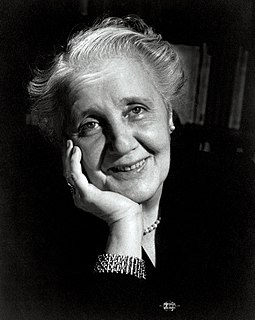A Quote by Julia Lathrop
... the growing child must not be treated by those rigid rules of criminal procedure which confessedly fail to prevent offenses on the part of adults or cure adult offenders.
Related Quotes
The new concept of the child as equal and the new integration of children into adult life has helped bring about a gradual but certain erosion of these boundaries that once separated the world of children from the word of adults, boundaries that allowed adults to treat children differently than they treated other adults because they understood that children are different.
A child is an eager observer and is particularly attracted by the actions of the adults and wants to imitate them. In this regard an adult can have a kind of mission. He can be an inspiration for the child's actions, a kind of open book wherein a child can learn how to direct his own movements. But an adult, if he is to afford proper guidance, must always be calm and act slowly so that the child who is watching him can clearly see his actions in all their particulars.
Children have a lesson adults should learn, to not be ashamed of failing, but to get up and try again. Most of us adults are so afraid, so cautious, so 'safe,' and therefore so shrinking and rigid and afraid that it is why so many humans fail. Most middle-aged adults have resigned themselves to failure.
I love child things because there's so much mystery when you're a child. When you're a child, something as simple as a tree doesn't make sense. You see it in the distance and it looks small, but as you go closer, it seems to grow - you haven't got a handle on the rules when you're a child. We think we understand the rules when we become adults but what we really experienced is a narrowing of the imagination.
Although psychology and pedagogy have always maintained the belief that a child is a happy being without any conflicts, and have assumed that the sufferings of adults are the results of the burdens and hardships of reality, it must be asserted that just the opposite is true. What we learn about the child and the adult through psychoanalysis shows that all the sufferings of later life are for the most part repetitions of these earlier ones, and that every child in the first years of life goes through and immeasurable degree of suffering.
Adults look upon a child as something empty that is to be filled through their own efforts, as something inert and helpless for which they must do everything, as something lacking an inner guide and in constant need of inner direction. . . . An adult who acts in this way, even though he may be convinced that he is filled with zeal, love, and a spirit of sacrifice on behalf of his child, unconsciously suppresses the development of the child's own personality.
In certain circumstances where he experiments in new types of conduct by cooperating with his equals, the child is already an adult. There is an adult in every child and a child in every adult. ... There exist in the child certain attitudes and beliefs which intellectual development will more and more tend to eliminate: there are others which will acquire more and more importance. The later are not derived from the former but are partly antagonistic to them.
Games are a trigger for adults to again become primitive, primal, as a way of thinking and remembering. An adult is a child who has more ethics and morals, that's all. I am not creating a game. I am in the game. The game is not for children, it is for me. It is for an adult who still has a character of a child.
In 1600 the specialization of games and pastimes did not extend beyond infancy; after the age of three or four it decreased and disappeared. From then on the child played the same games as the adult, either with other children or with adults. . . . Conversely, adults used to play games which today only children play.
































